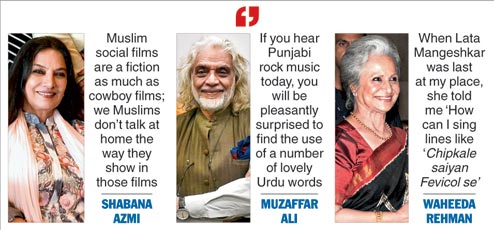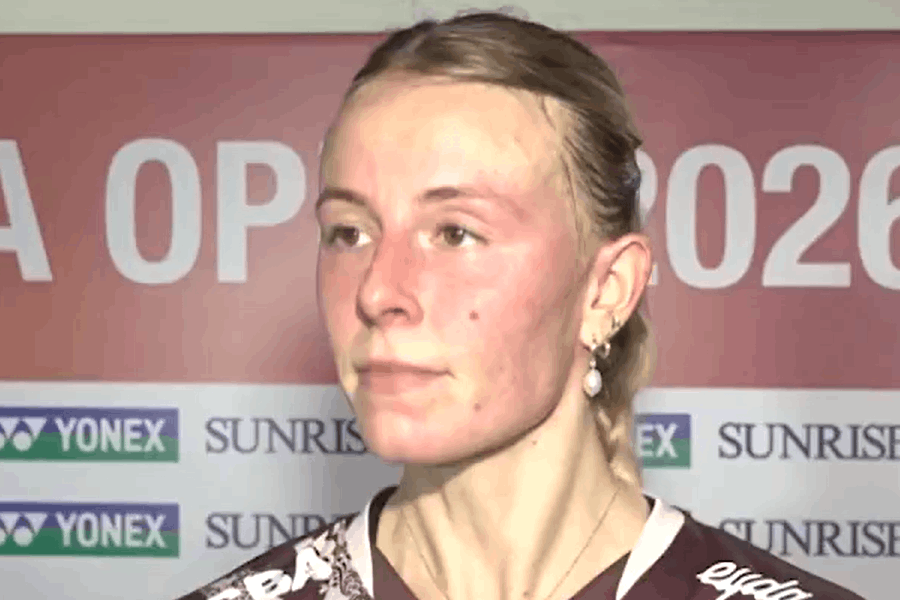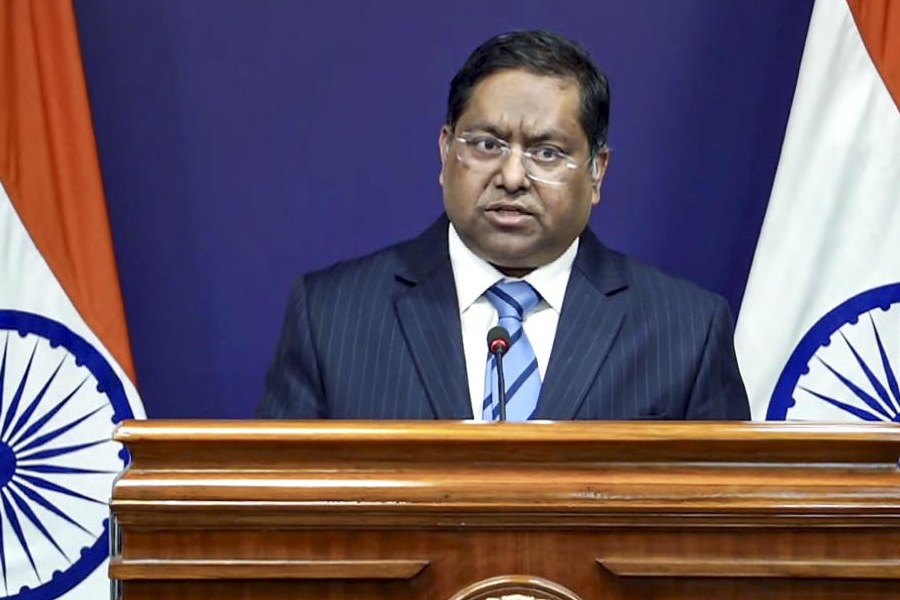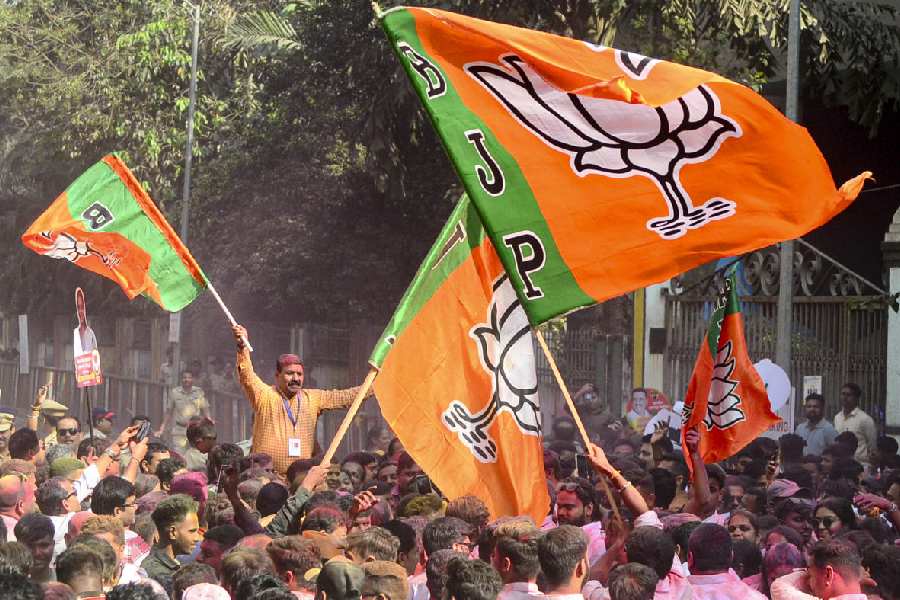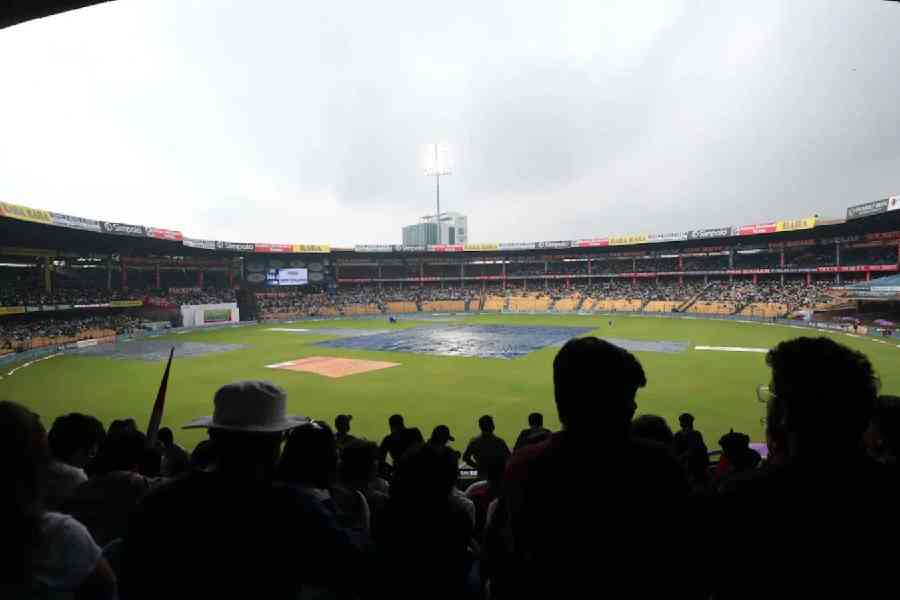
One expected that the fourth Jashn-e-Rekhta edition in Delhi (December 8, 9 and 10) - an event celebrating the Urdu language - would have been yet another congregation apologetic about its identity and complaining about its marginalisation.
One encountered a new face of this 'Taj Mahal of Indian languages' instead. The old narrative was gone: no whimpering about being interpreted as a Muslim language, no arzis to the government pleading for recognition and no complaining about the batwaara of the language.
On the contrary, what was on show was an Urdu with its tongue in its cheek. A post-card marketed in one of the memorabilia stalls at the event captured this mood: ' Urdu ko hum ek roz mita denge jahan se. Ye baat bhi kambakht ne Urdu mein kahi thi.' Another card nailed it: 'Tu vastu badi hai anandmayi anandmayi' in an obvious take-off on what naghma-nigaars (lyricists) would be reduced to if Urdu is taken out of Indian cinema.
Besides, it would have been convenient for the event to focus on sharaab, gulaab and maykhana. It didn't; it addressed the growing intolerance sweeping through the country - but with the subtlety of an artist, so you needed to be attentive and read between the text to arrive at the 13th line and exclaim 'Oh, now I get it!'
This was virtually a recurring theme session by session: the discussion between actor Nawazuddin Siddiqui and director Nandita Das was positioned as a pre-launch insight into the film on Manto (scheduled for release in 2018); however, the discussion highlighted the Manto-style need to show society the mirror despite the maahaul challenges. Nandita Das' word for this: Mantoyyat.
Shubha Mudgal had hazaar subjects on which she could have sung for the audience at Rekhta. And yet, she selected for a subject something increasingly relevant: The song of protest. When she sang Ibn e Insha's Kuch na kaho, kuch kehna ka waqt nahi hai, khaamosh raho! we knew what she was getting at; she followed up with Habib Jalib's Main nahi manta, main nahi jaanta which sealed it.
Then the mushaayra itself, that part of the event where prominent shaayars sit on stage, rising to go to the microphone and recite to the thousands. When the names were read out, I would have thought that the biggest applause would have been reserved for Javed Akhtar. I was mistaken; the biggest applause was reserved for Rahat Indori, who has created a reputation for directing much of his poetic angst at the Prime Minister and the ruling political party (much as Indori may deny).
And then Javed Akhtar was Javed Akhtar. The beauty of an Akhtar recitation is the simplicity fused with the power of his oration. Akhtar recited Yeh khel kya hai in an obvious reference to a game of chess. What is otherwise interpreted as a game suddenly acquires a new colour when he comes to the line (where he thunders Magar jo hai baadshaah us par kabhi koi aanch bhi na aaye.
The audience issued a firmaan: Javed Akhtar was compelled to recite the kalaam all over again.
I came away with the feeling that this was a Balraj Sahni- Garm Hava moment for modern-day Urdu. It wasn't going to plead that its language be heard; it was going to fight for the freedom of speech for an entire nation instead.

